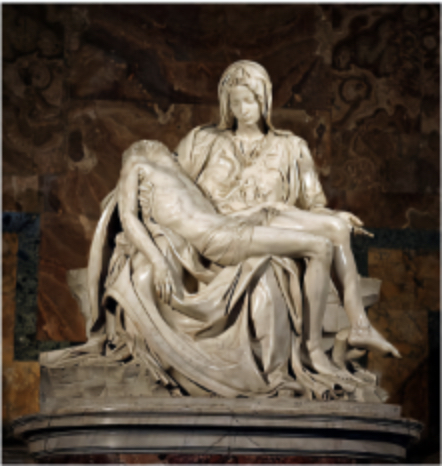a commentary on the spiritual life
You will come across the following statement, or a statement like it, several places on The Zoo Fence. I apologize for that. But in my mind, it is important enough to be repeated.
Here’s the thing. By design, The Zoo Fence is, as its sub-title suggests, a commentary on the spiritual life. Accordingly, it is inevitable that there are frequent references to spiritual Teachers like
Maharajji, Nisargadatta, Ibn ’Arabi, Moses, Ramana Maharshi, Lao Tzu, Basil, Jesus.
But about the name Jesus: It has been obvious to me for a long time — and most likely to many others as well — that the name Jesus
by which we know the Gospels Teacher was not actually the man’s name. In fact, the name Jesus
is the English form of the Latin form of the Greek form of the Hebrew word Yeshua or Yehoshua. Scholars tell us the man’s name was (almost) certainly an Aramaic word, most likely Issa or something like it. But definitely not Jesus
or Iesus
or anything similar. That is near certain because Jesus was born in a region of Judea where the common language was Aramaic (still is in some parts), and so Aramaic would have been the language spoken by his family, his neighbors and friends, and the language he was introduced to as a child. Just so, Mary and Joseph would have named him accordingly; they would not have chosen a Latin name for him or, scholars suggest, even a Greek or Hebrew name.
Given that, I cannot help but wonder, is it appropriate for me, for us, to consider him, to address him, to love him, even to pray to him, by the English version of the Latin name used by Pontius Pilate and his Roman soldiers as they drove iron nails into his hands and feet. Surely his mother, his siblings, his disciples, those who knew him in person and loved him, did not address him by that Roman name. Whom do I want to emulate, the Romans who mistreated him, or his family and friends who loved him?

Suppose a dear friend of yours were arrested and tortured by a foreign authority, and they called her or him by a different name, something more suitable to their language, would you adopt that name in addressing or remembering your loved one? The question answers itself, doesn’t it?
I have struggled with this for some while. I began by referring to the man in thought and in prayer as
Issa,but never out loud. My excuse has been, gee, old habits die hard, and what difference does it make, and surely he does not care.
Now (summer 2022) I am finally finding the intellectual courage to admit to myself that it does make a difference. If not to him, then it ought to to me. If I respect him, if I love him, if I cherish his Teachings — all of which I do, then I owe it to him and to myself to address him by his proper name, by the name Mary and Mary Magdalene and Peter and James addressed him, not the name coined by those who abused him, beat him, murdered him.
And so I am putting
Issaon The Zoo Fence. When I began writing the playlet Jesus and Judas, he was Jesus, but I have changed that to Issa. However, I left a link to the original version where he is
Jesusbecause I realize that a lot of TZF visitors will initially experience as much difficulty ingesting the name
Issaas I have, and I do not want that discomfort to interfere with their willingness to consider the point of the playlet. Likewise, for a while I have included with most appearances of the name
Issaa link to this explanation or another like it. Again, it has taken me a long time; there is no reason for me to insist that TZF visitors deal with this quicker than I was able (or willing).
A personal thought: William Shakespeare asks, in Juliet’s voice,
What's in a name? That which we call a rose by any other name would smell just as sweet.Here’s my experience of that. At birth, I was named Stefan, spelled that way and pronounced STEFuhn. Over my lifetime, others have pronounced it steFAN or steVAN, and in writing, spelled it Stefen or Stephan or Stephen or Steven. Should I care? Many years ago, when I was young boy in school, a teacher whom I corrected after she pronounced my name
incorrectly,thanked me for doing so:
I want to think of you as you think of yourself.I have not forgotten the generosity and logic of that.
• To jump to my playlet about a meeting of Jesus, Judas, and Mary Magdalene, click here.
• For my consideration of the crucifixion, please click here.
• To return to my home page, please click here.
• Note: Michelangelo’s
La Pietáis at St Peter’s Basilica in Rome. The Italian word pietá means compassion, mercy, pity. There is an Italian expression,
facere pietá ai sassiwhich means, freely translated, to make the stones weep. Surely Michelangelo, working on this piece of stone (Carrara marble), chose La Pietá for its name to remind us of Luke 19:40, I tell you, if these (disciples) were silent, the very stones would cry out. And speaking of stones, consider Vasistha’s Yoga
even stones shed tears,and in an exchange about non-violence and a vegetarian diet, Ramana Maharshi’s response to a devotee who said even plants have life,
So too the slabs you sit on.
Hail Maryam
Full of Grace.
God is with you.
Blessed are you among women,
Blessed is the fruit of your womb, Issa.